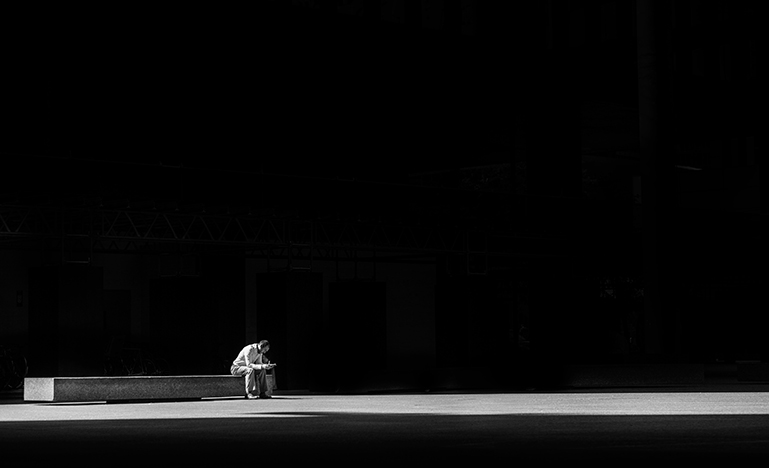One of the areas within my work portfolio is a small law enforcement department or SIU. The unit is staffed primarily by former police officers with experience in investigation and interviewing. For a while, one of the fellows on board was a polygraph examiner who, even without the device, was formidably adept in the art of detecting deception. For fun, he taught the interviewing course to FBI recruits at Quantico.
It was always disconcerting to go to lunch with this guy. Chatting over a sandwich, he would appear to be evaluating the truth of every statement I made.
Since I look guilty even when telling the truth, I know I’d make a terrible liar. But lying is an everyday part of our lives and sometimes it serves a legitimate purpose.
I like to think I’ve instilled the proper values in my children. One such value is truth-telling. So I’ve got some explaining to do when they catch me lying. My daughter once overheard me as I was dealing with a telephone solicitor.
“He’s dead,” she heard me say, in reference to myself, driving home the point that there’s no use calling back.
When I hung up, my daughter asked, “Why did you just tell someone that you’re dead?”
“Kate, life is all about choices,” I explained. “At that particular point in time, it was more important to me to get rid of the caller and make sure he doesn’t call back than to admit that I’m alive. Besides, no one was hurt by what I said and there wasn’t much at stake.”
As humans, convenience justifies our behaviour. This was surely on display during the latter half of last year as we observed, almost in daily installments, attempts by Toronto’s buffoon mayor to square his previous remarks to the sworn record contained in the ITO affidavit.
In particular, Rob Ford pointed out that he had been asked whether he smokes crack, not whether he had smoked crack. There’s a big difference. To hear the bellicose chief magistrate of Hogtown hold forth on the nuances of verb tense demonstrated how, in the right hands, linguistic precision can be obfuscation. It was technical truth in the finest Clintonesque tradition.
Not all of us are steeped in the techniques of separating truth from fiction, but intuitively we can all form impressions about whether someone is telling us the truth. The Supreme Court of Canada reminded us in R v Gagnon, 2006 SCC 17, that “assessing credibility is not a science. It is very difficult to articulate with precision the complex intermingling of impressions that emerge after watching and listening to witnesses ...”
As I watched the Fordian tragicomedy unfold, I knew that I was making judgments about the veracity of what was being said by the various players on stage. I asked myself what factors make up my “complex intermingling of impressions” and came up with this list:
• Vantage point: Was the person able to observe the events in question, clearly and without impediment?
• Accuracy and acuity: Is the recollection clear, detailed and consistent, or vague, unfocused and meandering?
• Plausibility: Does the account accord with known facts and common sense?|
• Forthrightness: Was the person co-operative or reluctant?
• Bias: Is there an agenda or motive?
• Reputation: Is the person known to be trustworthy or have special knowledge or expertise in the subject area?
• Being informed: Did the person consult records or other sources of information to support the account?
We await the denouement in the Rob Ford story, what law enforcement authorities might do, and astonishingly, whether Mayor Ford will achieve re-election. In particular, we will be inexorably drawn to evaluate the truthfulness of His Worship’s every utterance.
In our courts, judges and juries are charged by law to believe or not believe the testimony that is aired. In this life, as observers of both everyday events and those as extravagant as the Rob Ford spectacle, all of us are surely triers of fact.



